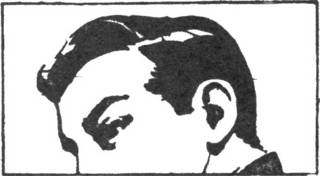S W Fallon’s A New Hindustani-English Dictionary (1879) is regarded as one of the most remarkable works of Indian lexicography. With its illustrations from folklore, proverbs, songs, and literature, it is a lot more than a mere dictionary: like that other great glossary of the colonial era, Hobson-Jobson, it carves up an entire culture and serves it up in tasty, chewable bits. Fallon took up the language of north India in the late 19th century as his field of study, the common colloquial speech which was then being thrust out of sight in official use as well as literature by an artificial written language of 'stiff pompous words, strange Arabic sounds which have no meaning for the people, and the dull cold clay of Sanskrit forms'. As writes in his column, to open Fallon is to 'see the invisible stream that flows all around us, full of things we have left unsaid':
On its pages is found the sap and wit of the north Indian vernacular: the common stock of allusions that once played in the minds and memories of its speakers and disseminators. Language that is both ordinary and heightened, rank and sweet, and lingers in the mind. To borrow from Kenneth Burke, language that brings out the thisness of that or the thatness of this.In an article in Dawn, Rauf Parekh writes that Fallon knew the value of field research in lexicography. With the help of his native informants, he recorded the words and idioms used by women, and interviewed ordinary people to understand usage and pronunciation. In an aside, Parekh notes that this led Fallon to use lewd or taboo words 'and he sort of developed a taste for such expressions'.
Fallon's lack of prudery and his emphasis on descriptive rather than prescriptive lexicography is what sets him apart from most Hindi/Urdu lexicographers. It also makes his dictionary a great read. Satwik recommends a weekly dip into its pages, which I think is a most excellent idea. So here's a first dubki into Fallon's ocean of words - this uncommon word is one of the many oddities he's collected:
Ardor urinae, I discovered, is an obsolete medical term for a scalding sensation during urination. The Hindi word, however, is as colloquial as they come, and is used here in an earthy metaphor about the dangers of yielding to temptation. (I suspect the word is related to चिनगारी , chingari, which is a spark or flying ember rising from a flame).
More Fallon next week: meanwhile, if you want to join the trawl, you can search the dictionary here or download it here.


No comments:
Post a Comment